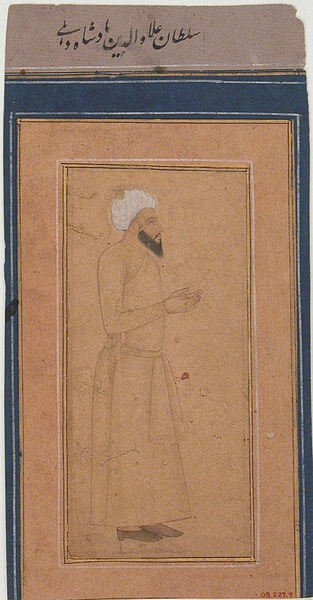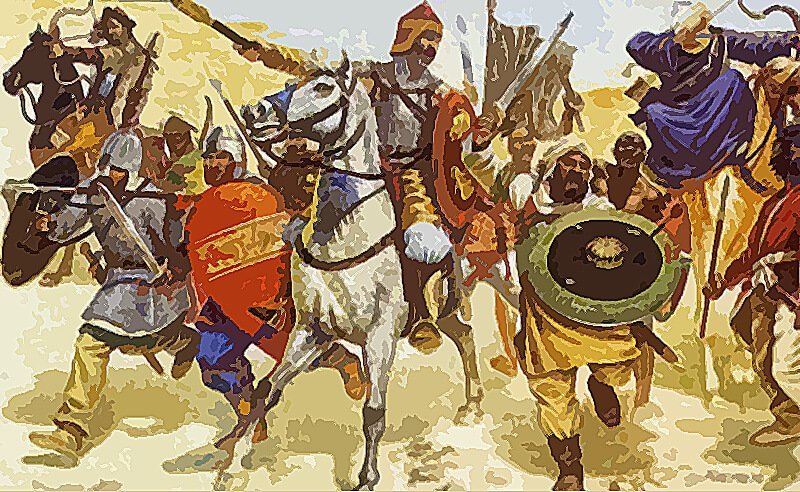Indian history abounds with captivating tales that introduce us to our rich and glorious past. Our past is so fascinating that the more we learn about it, the more intrigued we become. This is perhaps why Sanjay Leela Bhansali keeps making history-dramas. His latest film Padmaavat is yet another such drama, based on the life of Rajput Queen Padmavati also known as Padmini, and it promises to bring one more interesting story from the annals of history.
The legend of Queen Padmavati is a tale of lust and war, which unfortunately ended in tragedy.

The story of Rani Padmavati and Alauddin Khilji is mentioned in Padmavat, an epic poem written by Malik Muhammad Jayasi. A long time ago, in the early 14th century, Chittorgarh was ruled by Rawal Ratan Singh of the Sisodiya Clan. Padmavati was his second queen, whom he had married after winning the swayamvara.
Among the king’s many subjects was Raghav Chetan, a musician in his court. What nobody knew however was that Raghav was also a sorcerer. One day, while he was performing sorcery which was considered illegal, he was caught and banished by the king.
Enraged at the humiliation, Raghav Chetan started plotting revenge. He went to Delhi and took refuge in the court of Alauddin Khilji, the Sultan of Delhi. As he gained the Sultan’s trust, he began singing praise of Queen Padmavati’s beauty, thus invoking the Sultan’s curiosity.

Intrigued by the description of Padmavati’s enticing beauty, Alauddin marched to Chittorgarh with his soldiers and set up camp outside the fort. Word was sent to Rawal Ratan Singh that the Sultan of Delhi had come to catch a glimpse of his queen after which he would leave. The request made the King uncomfortable as Rajput custom didn’t allow women to meet strangers. But Rawal Ratan Singh knew that upsetting the Sultan would result in an attack. So, to save his kingdom and his people, he agreed that the Sultan could see his queen.
Padmavati didn’t want to have a face-to-face meeting with the Sultan. So mirrors were arranged in the palace in such a way that the Sultan could see the queen’s reflection, without the queen having to meet him in person.
But with just one look at Padmavati’s reflection, the Sultan was smitten by her beauty. He was so captivated that he changed his mind and decided that he would not leave without the queen. On his way back to the camp, the Sultan was accompanied by Rawal Ratan Singh.
As they reached the end gate of the palace, Khilji sensed an opportunity and captured Rawal Ratan Singh. He then sent a message to the palace that if they wanted to see their king alive, Padmavati should accompany him to Delhi. That was when, two loyal generals of the king – Gora and Badal – devised a plan and sent a message to the Sultan that the queen had agreed to go with him.
The next day, over one hundred palanquins made their way to the Sultan’s camp and he was told that the queen was coming with her maids. Only she wasn’t. The palanquins had soldiers hidden inside, who fought fiercely and freed their king.

Alauddin Khilji was enraged when he realised that he had been tricked. This sent him into such a fury that he ordered his army to break into the fort. But the mighty Chittorgarh Fort was impregnable. So, the Sultan’s army laid siege to the fort, cutting off all the supplies. Days went by but the Sultan and his army didn’t budge. Inside the palace, the food, water and other supplies began to run out. Finally, Rawal Ratan Singh decided that the warriors would face the huge army outside. The valiant Rajput soldiers vowed to sacrifice their lives for their pride and their king. But the small army stood no chance against the well-equipped soldiers outside who were massive in number.
War ensued and Chittorgarh fell. It soon became clear that the Sultan’s victory was inevitable. With their men fighting the enemy, the women of the palace chose to sacrifice their lives over a life of humiliation and ill-treatment at the hands of the Sultan. A huge pyre was lit and the queen and other ladies dressed up in their best clothes. They sang religious songs and prepared themselves to endure the pain as the flames engulfed their bodies. Rani Padmavati jumped first and the rest of the women followed.
When the war ended, the remains of the bodies and the ashes were all that was left. Despite winning the war, Sultan Alauddin Khilji did not succeed in getting what he had fought for.
The legend is disputed and most scholars claim that it’s just an epic to glorify Rajput history but nonetheless, it makes for an interesting story!
Feature image sourced from Gajab Khabar

















